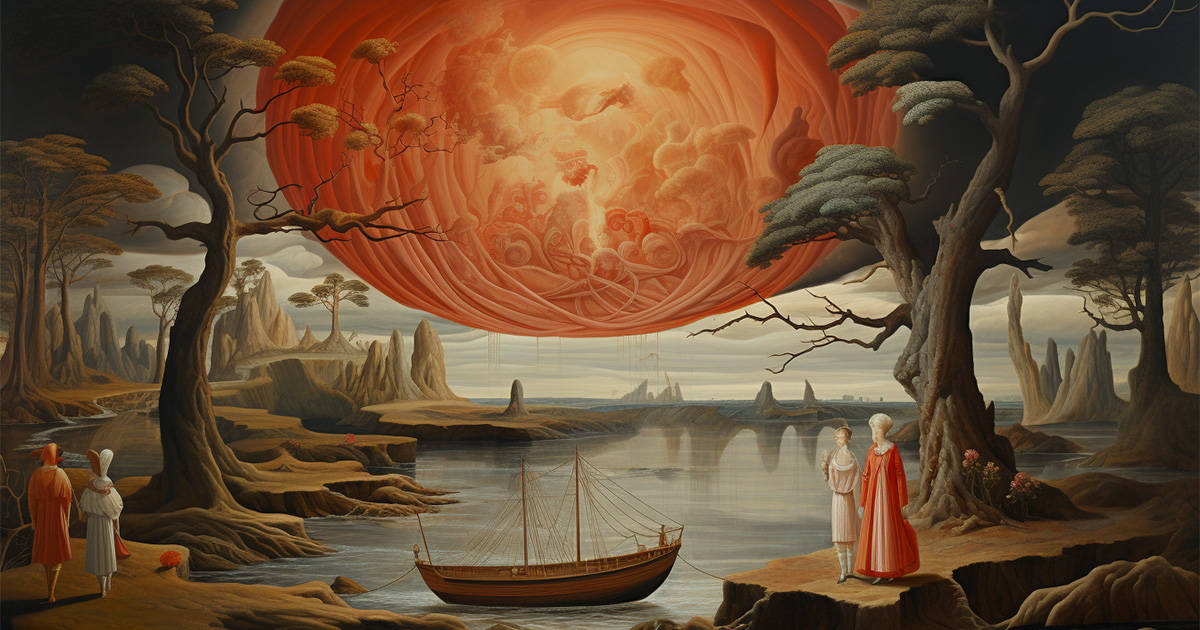We live in a time of such rapid change and incessant invention that it is hard to recall how recent this all is. From the beginning of our dating system, the Birth of Christ, until the dawn of the 17th century, a mere 400 years ago, the world seemed to stand still intellectually.
There was plenty of physical action: wars, pestilence and famine over and over again, but very little intellectual progress. In the West, at least, this could be attributed largely to the influence of the Roman Catholic Church, a vigilantly conservative institution that equated Knowledge with Belief. Based largely on a Babylonian myth the Earth was the center of the Universe and the Sun and stars revolved around it. One only needed to look upwards to see the truth.
To question these facts was to risk being burned or boiled alive. Then in 1543, safely on his deathbed, the Polish polymath Copernicus published a revolutionary treatise proclaiming the Heliocentric Theory that the Earth and planets revolved around the Sun. The idea was so obviously ridiculous that the Church paid little attention to it until Galileo of Pisa, who had employed the newly invented telescope to study planetary orbits, announced his support of Copernicus. In 1632 the Holy Inquisition, enraged, accused him of heresy, citing the Book of Psalms, which at 93.1 and 96.10 declared that the World was immovable.
And, even though Galileo recanted, placed him under house arrest for the rest of his life. The heretical works of both Copernicus and Galileo were placed on the Index of Prohibited Books until 1835.
But the cat was already out of the bag. If the Church could be wrong about cosmology, might it also be wrong about Belief? The Church had already compromised its integrity by including in its Canon, or system of belief, the Hebrew Torah, re-naming it The Old Testament.
The Torah is a record, compiled over many centuries, of the oral and written traditions of a group of contentious tribes whose only claim to our attention is an unfashionable monotheism combined with a continuing belief in the advent of a Messiah.
Translated from Biblical Hebrew into Greek, this word became ‘Chrystos’, meaning the Anointed One, corresponding to the English Great Leader along with Caesar, Czar or Kaiser all from the same root. Messiah had no divine connotation, and was in fact applied to King Cyrus of Persia around 500 BC.
The decision by the early Church to re-define the word Messiah as Savior and to award it divine status, then to equate Jesus the Nazarene with the Jewish Messiah was doubtless intended to legitimize Jesus’ ministry as the culmination of a series of prophesies going back for centuries. But the violent history of primitive tribes contrasted oddly with the compassionate teachings of the Nazarene.
Then, having made off with several centuries of Jewish tradition the Church added insult to injury by roundly blaming the Jews for the crucifixion of their man. No wonder the parties wouldn’t talk to each other for a millennium.
Furthermore, even in the New Testament the downright mystical concepts of he Holy Trinity, the Immaculate Conception, the Resurrection and the Remission of Sins, together with the performance of miracles were obviously imported from sources far to he East of Jerusalem and failed to impress an increasingly sophisticated audience in the 17th century. Finally, by declaring as heresy and burning objectors to these dubious ideas, along with increasingly corrupt administration, the Roman Catholic Church with its insistence on belief became vulnerable to widespread criticism.
All of these factors, including the sale of Papal Indulgencies and relics of the True Cross combined to start people thinking about the difference between Belief and Knowledge and culminated in the Renaissance, a period of intellectual and artistic ferment which eventually gave birth to he French Revolution of 1789, when embedded concepts of Authority, such as the Divine Right of Kings and Papal Infallibility finally came into question.
The parallel Scientific Revolution, which treated Knowledge as a totally separate field of inquiry from Belief, took off like a rocket and is still with us.
But Science does not offer the consolations of Religion, which by providing justification for our existence and promising a better life after death fulfills a basic need for its adherents. Science, moreover, has still not answered the final question: who or what created the Universe?
And until it has done that it cannot claim to be a credible alternative to Religion. It will probably turn out that our own Universe is merely a particle in a greater Universe, which in turn is only one of an infinite regression of universes. The human mind as it is presently constructed is capable of postulating but not of comprehending such an eventuality, and we must wait for Evolution to solve the problem for us. Meanwhile, we always have Belief.






